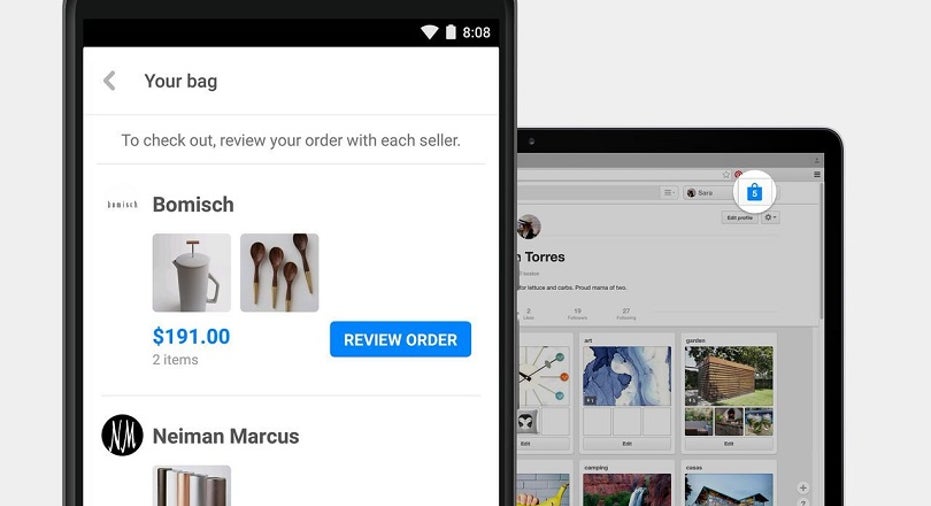Pinterest Encourages Shopping Frenzy With New AI Features

Machine learning and artificial intelligence are coming to Pinterest, which this week announced new features aimed at encouraging its users to use the site for shopping.
When you're looking at a pinned photo on the Pinterest app, you can tap a new visual search icon in the upper right corner of the screen to display a series of dots that mark the products Pinterest thinks you might like to buy.
If the pin is a scene of a bedroom, for instance, Pinterest's AI algorithms might identify the lamp and the bedspread with dots, which you can then tap on to see similar pins. Thanks to a revamped shopping bag, you can then add any buyable Pin that catches your eye, and your potential purchases will show up on the Android app and when you're logged in to the Pinterest website.
Its engineers liken the speed with which the new dots appear to Google's autocomplete feature—in other words, it's nearly instantaneous. That speed meant finding a way to reduce latency, which the engineering team accomplished by sharing the computing workload between algorithms that identify the region of the image to be searched and those that identify the products within the image.
"Since an image can contain dozens of objects, we wanted to make it as simple as possible to start a discovery experience from any of them," engineer Dmitry Kislyuk wrote in a blog post. "In the same way auto-complete improves the experience of text search, automatic object detection makes visual search a more seamless experience."
The company says iOS support is coming soon, along with the ability to search using offline photos you've taken yourself. And in case there aren't already enough products to satiate your shopping appetite, Pinterest also added 20,000 merchants and more than 10 million unique products to the site.
The new visual search feature is a powerful update to a tool that rolled out last fall, which allows people to use images as search queries. Pinterest says more than 130 million visual searches are done every month.
This article originally appeared on PCMag.com.



















